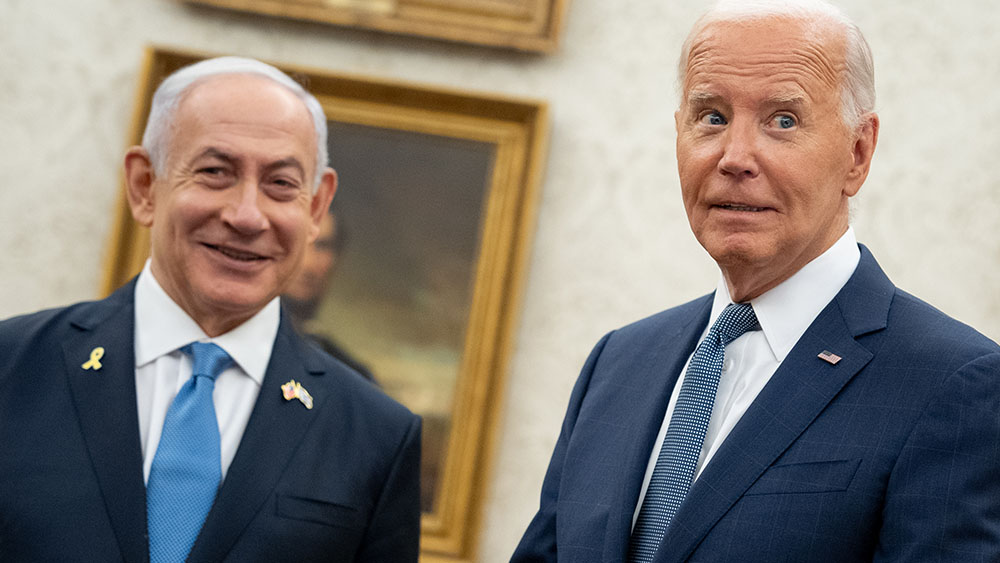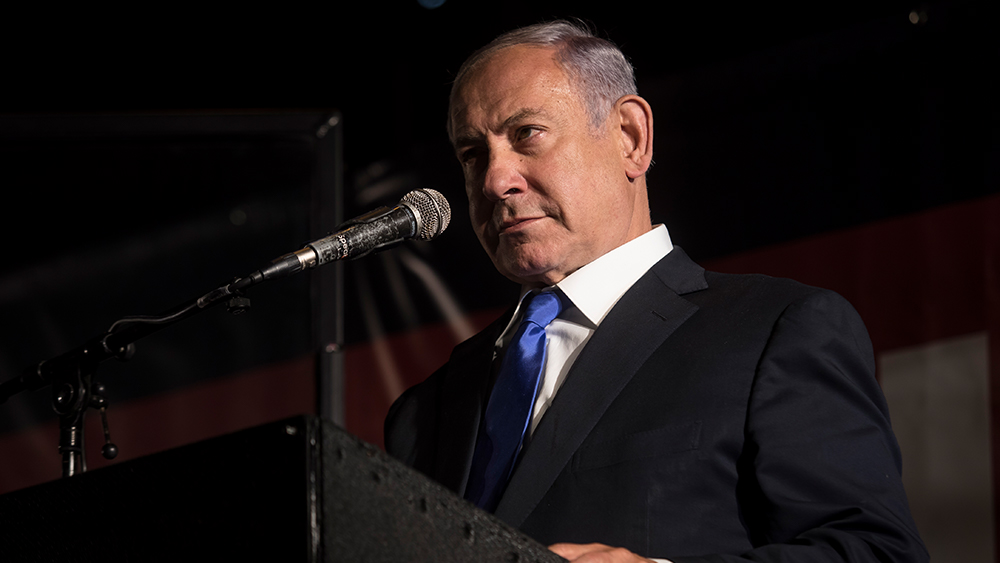Senator Schmitt introduces legislation to take on Government-Corporate-Big Tech censorship machine
12/16/2024 / By Lance D Johnson

• US Senator Schmitt believes the “deep state” may continue to work with Big Tech to censor free speech.
• He introduced new legislation to prevent government-Tech collusion.
• The Transparency in Bureaucratic Communications Act would mandate Inspector Generals to report all communications with Section 230 companies.
• Previous government pressure on tech companies led to constitutional concerns and investigations.
• Internal documents from Twitter revealed how the government leaned on tech companies to censor truthful content.
Senator Eric Schmitt introduces legislation to take on Big government and Big Tech collusion
In a bold move aimed at curbing government-corporate collusion, Republican Senator Eric Schmitt has introduced the Transparency in Bureaucratic Communications Act in the US Senate. This legislative effort seeks to prevent future instances of government agencies working with tech companies to suppress free speech, a practice that has garnered significant attention in recent years.
The bill, if passed, would empower Inspectors General (IGs) to provide comprehensive reporting on any communication between government agencies and companies benefiting from Section 230 protections. These IGs would be required to detail the nature of these communications, the circumstances surrounding them, and their impact on content moderation, user content, and algorithmic decisions. By requiring IGs to inform Congress about these interactions, Schmitt aims to bring much-needed transparency to the murky relationship between the government and tech giants.
The amendment requires Inspectors General to report to Congress on government communications, including those on social media. This includes detailed descriptions of communications between government agencies and internet services, content providers, and software providers. These communications can include:
- Content moderation policies and practices.
- User-generated content like posts, photos, and videos.
- Other communications related to the online service’s data inputs, algorithms, modeling processes, analysis tools, and related technologies.
The Biden censorship regime was harmful to democracy and public health
Schmitt’s concern is not unfounded. During the Biden administration, there were multiple instances where government agencies pressured social media companies to censor content that they deemed harmful or misleading. These actions raised serious questions about the extent of government influence over the free flow of information online. The Missouri v. Biden lawsuit, of which Schmitt was a key figure, shed light on allegations of unconstitutional collusion between the government and tech companies, an issue that eventually caught the attention of the Supreme Court.
The acquisition of Twitter by Elon Musk in 2022 and the subsequent release of internal documents further exposed the extent of these interactions. These documents revealed that tech companies were not only being pressured to censor content but were also employing third-party intermediaries to sidestep constitutional prohibitions on censorship. This practice blurred the lines between private companies’ content moderation policies and government directives, creating a complex web of censorship that undermined the principles of free speech.
Schmitt’s Transparency in Bureaucratic Communications Act is designed to prevent similar incidents from occurring in the future. By requiring detailed reporting on all communications related to content moderation, user content, and algorithmic decision-making, the bill aims to ensure that any collusion between government agencies and tech companies is transparent and accountable.
The case of Missouri v. Biden, although ultimately dismissed by the Supreme Court, was instrumental in bringing the issue of government-Tech collusion to the forefront. In a Judiciary Committee investigation, Meta CEO Mark Zuckerberg admitted that the government had indeed pressured the tech giant to censor certain content, a revelation that underscored the extent of this practice during the previous administration.
In this context, Schmitt’s bill represents a crucial step towards addressing the threat to free speech posed by government-corporate collusion.
By implementing robust transparency measures and providing Congress with the information needed to hold these entities accountable, the Transparency in Bureaucratic Communications Act could pave the way for a more open and transparent online environment.
The fight against censorship is far from over, and the battle for online free speech continues to gain momentum. With increasing calls for transparency and accountability, the future of online freedom may well depend on the success of measures such as Schmitt’s bill in curbing the “deep state’s” influence over American voices.
Sources include:
Docs.ReclaimtheNet.org [PDF]
Submit a correction >>
Tagged Under:
banned, big government, Big Tech, Censorship, deplatforming, due process, Eric Schmitt, false narratives, free speech, political oppression, Shadowbanning, Suppressed, surveillance, transparency, viewpoint discrimination
This article may contain statements that reflect the opinion of the author
RECENT NEWS & ARTICLES
COPYRIGHT © 2017 PENSIONS NEWS




















